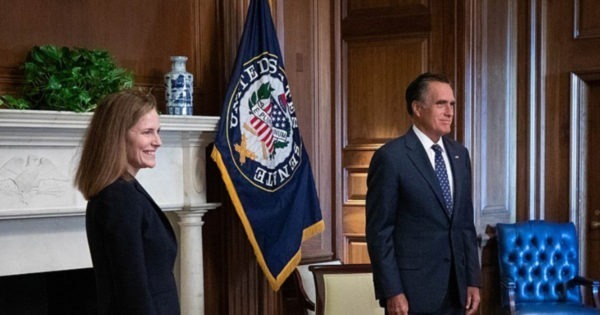
Kelly v. Pennsylvania, the case widely considered to be Republicans’ strongest challenge to the disputed results of the 2020 election, has just been rejected in a one-sentence order from the Supreme Court. This dashes hopes that the Supreme Court’s 6-3 “Republican” majority would intervene to address proven 2020 election irregularities.
The order issued today reads simply:
The application for injunctive relief presented to Justice Alito and by him referred to the Court is denied.
The case, headed by Rep. Mike Kelly (R-PA), challenged the enactment and enforcement of various election law changes by the Republican Pennsylvania legislature and Democrat Governor from 2019 through 2020.
READ MORE: Ted Cruz Says He Will Argue PA Election Fraud Case In Front Of The Supreme Court
The Pennsylvania Constitution has very strict guidelines for how voters may receive absentee ballots and for how the Constitution may be amended.
Article VII, section 14 of the Pennsylvania Constitution requires that absentee ballots be given to voters in only four limited circumstances, and was directly violated by rules effectively allowing absentee ballots to anyone who applied for them.
As such, any changes to the handling of absentee ballots contradicting the Pennsylvania Constitution would have to be handled by a constitutional amendment. That would have had to have been approved by two consecutive legislative sessions and then approved by the voters in a ballot question for the election before the changes would take place.
The lawsuit initially fared well in Commonwealth Court, with Judge Patricia A. McCollough ordering a halt to official certification of the election results on November 27th. In her order, Judge McCollough noted that the Republicans “are likely to succeed on the merits because they have showed that a substantial legal question must be resolved to determine the rights of the parties.”
VIDEO: Pennsylvania Halts Election Certification As Trump Campaign Makes Powerful Voter Fraud Case
The Pennsylvania Supreme Court swooped shortly thereafter with a dismissal of the case based on the doctrine of laches. The doctrine, whose name comes from a French word “laziness” and connotes cowardice, holds that litigants do not have standing to sue if they file too late.
In this case, the Pennsylvania Supreme Court ruled that the Republicans were “lazy” for not filing their challenge until after the election had already taken place.
However, as the Republicans’ application to the Supreme Court noted, the same Pennsylvania court had previously held that challenges to election law before election also did not have standing because no one had yet suffered legal injury.
By the Pennsylvania court’s logic, it would be impossible for anyone to have standing to challenge any election at all, no matter how flagrantly and obviously unconstitutional.
As it stands, the one hope remaining in Pennsylvania for President Trump’s team to overturn their disputed election results is for the Pennsylvania legislators to use their Constitutional authority to decertify the election. However, the Republican legislature has so far declined to do so.